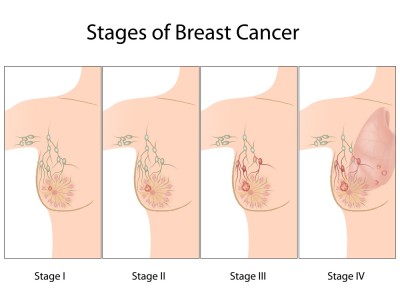More detailed findings confirm that coffee protects against breast cancer recurrence
A number of research studies have shown that coffee helps to protect against breast cancer. A new study led by Lund University, has confirmed that coffee inhibits the growth of tumours and reduces the risk of recurrence in women who have been diagnosed with breast cancer and treated with the drug tamoxifen.
The study, which is a follow-up of the results the researchers obtained two years ago, was carried out at Lund University and Skåne University Hospital, in collaboration with researchers in the UK.
“Now, unlike in the previous study, we have combined information about the patients’ lifestyle and clinical data from 1090 breast cancer patients with studies on breast cancer cells. The study shows that among the over 500 women treated with tamoxifen, those who had drunk at least two cups of coffee a day had only half the risk of recurrence of those who drank less coffee or none at all”, explain researchers Ann Rosendahl and Helena Jernström, who obtained the results in collaboration with Jeff Holly and his research team at University of Bristol.
“The study also shows that those who drank at least two cups of coffee a day had smaller tumours and a lower proportion of hormone-dependent tumours. We saw that this was already the case at the time of diagnosis.”
In the cell study, the researchers looked more closely at two substances that usually occur in the coffee drunk in Sweden - caffeine and caffeic acid.
“The breast cancer cells reacted to these substances, especially caffeine, with reduced cell division and increased cell death, especially in combination with tamoxifen. This shows that these substances have an effect on the breast cancer cells and turn off signalling pathways that the cancer cells require to grow.”
Coffee has been the subject of many studies related to its advantages and disadvantages to health. Studies show that it could fend off diabetes 2, heart disease, asthma, gallstones, Parkinson’s disease and liver cancer. In this post, we detail a few of the major studies done on its effect on breast cancer, especially before and after menopause.
The studies results included on the Coffee and Health website (from the Institute for Scientific Information on Coffee) were divided in different groups. Here are the three major ones that we see relate mostly to our purposes:
1- General: A French prospective study following 67,703 women for 11 years showed no relationship between coffee (or caffeine) and breast cancer risk.
2- In pre-menopausal women: the consumption of regular coffee (4 cups/day) has been linked to a reduced of breast cancer by 38%. The amount mentioned in the study is 4 cups a day.
- In pre-menopausal women with genetic risk, carrying BRCA1 and BRCA2 mutation, the risk is reduced by 25-70% with 4-6 cups of coffee a day in comparison with non coffee drinkers. This does not apply to decaffeinated coffee.
- Women who carry another gene linked to modulating the risk of breast cancer, CYP1A2, also have a 64% reduced risk compared to non coffee drinkers.
- The data suggests that genetic variability has to be taken into consideration when assessing diet and disease relation.
3- In post-menopausal women: recent studies show that there is no relation between coffee consumption and the occurrence of breast cancer in post-menopausal women.
 The researchers have demonstrated both in breast cancer patients and at cell level that coffee appears to reinforce the effect of treatment with tamoxifen, but emphasise the importance of taking prescribed medication.
The researchers have demonstrated both in breast cancer patients and at cell level that coffee appears to reinforce the effect of treatment with tamoxifen, but emphasise the importance of taking prescribed medication.
“They are incredibly important, but if you like coffee and are also taking tamoxifen, there is no reason to stop drinking it. Just two cups a day is sufficient to make a difference.”
In pre-menopausal women, the consumption of regular coffee (4 cups a day) has been associated with a 38% lower risk of breast cancer (relative risk 0.62)
- In pre-menopausal women at high risk, because they carry the BRCA1 andBRCA2 mutation, the risk for breast cancer is reduced by 25-70% with daily consumption of 4-6 cups of coffee compared to non coffee drinkers. However, this beneficial effect is limited to regular coffee; it is not observed with decaffeinated coffee.
- The risk of breast cancer is also modulated by the CYP1A2 gene, and the interaction between coffee consumption and the polymorphisms A and C of this gene have been studied. Women carrying at least one C allele (AC or CC), who consume coffee, have a 64% reduced risk compared to non coffee drinkers. Coffee has no effect in women with the AA genotype
Taken together, these data suggest that, among women with the BRCA gene mutation, high levels of coffee consumption may be related to a reduced risk of breast cancer. They also illustrate the importance of integrating individual genetic variability when assessing diet-disease associations..
###
Ann Rosendahl
.(JavaScript must be enabled to view this email address)
46-461-77567
Lund University
Journal - Clinical Cancer Research